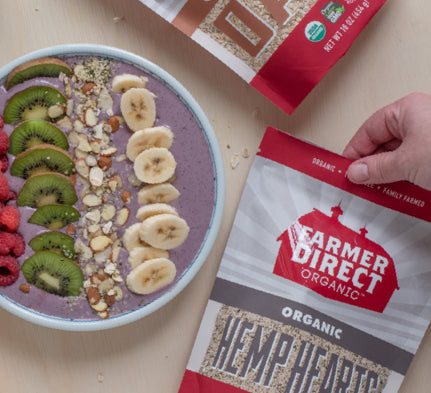Andy Wagman
Agronomics Over Economics
Andy Wagman has been farming organically for more than 20 years, “long before it became cool,” he says. When he started, though, he discovered organic almost by accident. Input costs and interest rates were high, and commodity prices were low.
“People would say, ‘You can’t afford to buy the equipment to farm land feasibly.’ I look at it exactly opposite. There’s never been a better time to get into farming.” Andy found a competitive edge in organics with lower up-front cost compared to conventional farming and by repurposing older model tractors that were still suitable for organic growing. Since then, “it’s become a belief, a way of life.”
Andy sees land as an opportunity to practice what he calls “agronomics,” as opposed to traditional economics.
“I base all of my decisions on a minimum five-year vision. I use that vision to build and look after my soil.”
It’s about feeding the soil rather than feeding the plant. By caring for the value of his soil, his soil turns greater yields over time.
The success of this process is most visibly indicated by the plant diversity that his land is able to support. Andy supplies our split yellow peas, but he’s also growing crimson clover, turnips, and buckwheat. He’s experimenting with intercrops like brown mustard with lentils, barley with yellow beets. This year, he seeded brown flax and red clover, and he’s curious about introducing leaf-cutter bees. All of these experiments serve Andy’s agronomic approach to building the health of his soil, which in turn, ensures the quality of his harvest. That’s agronomics, an investment in sustainable health.
